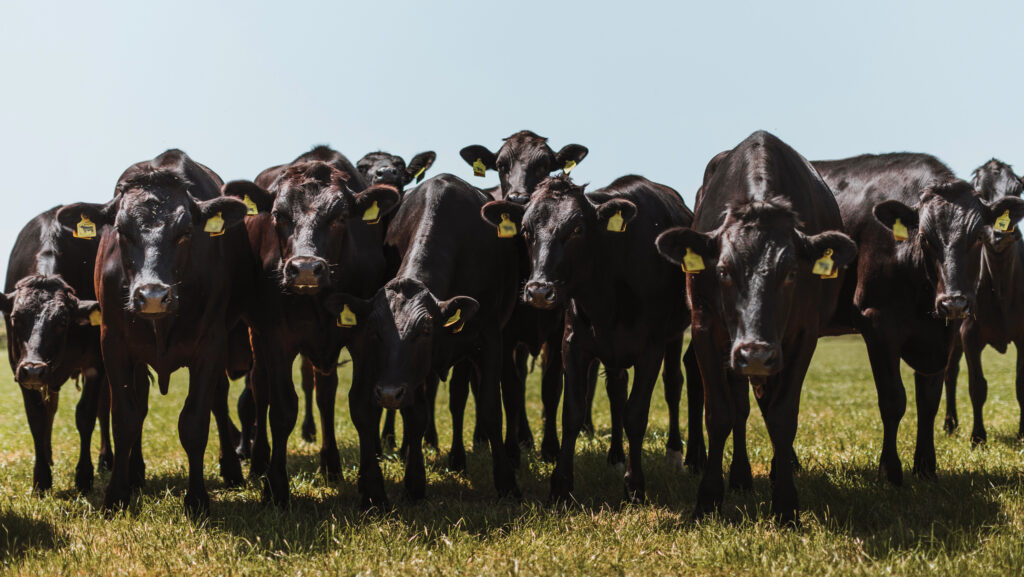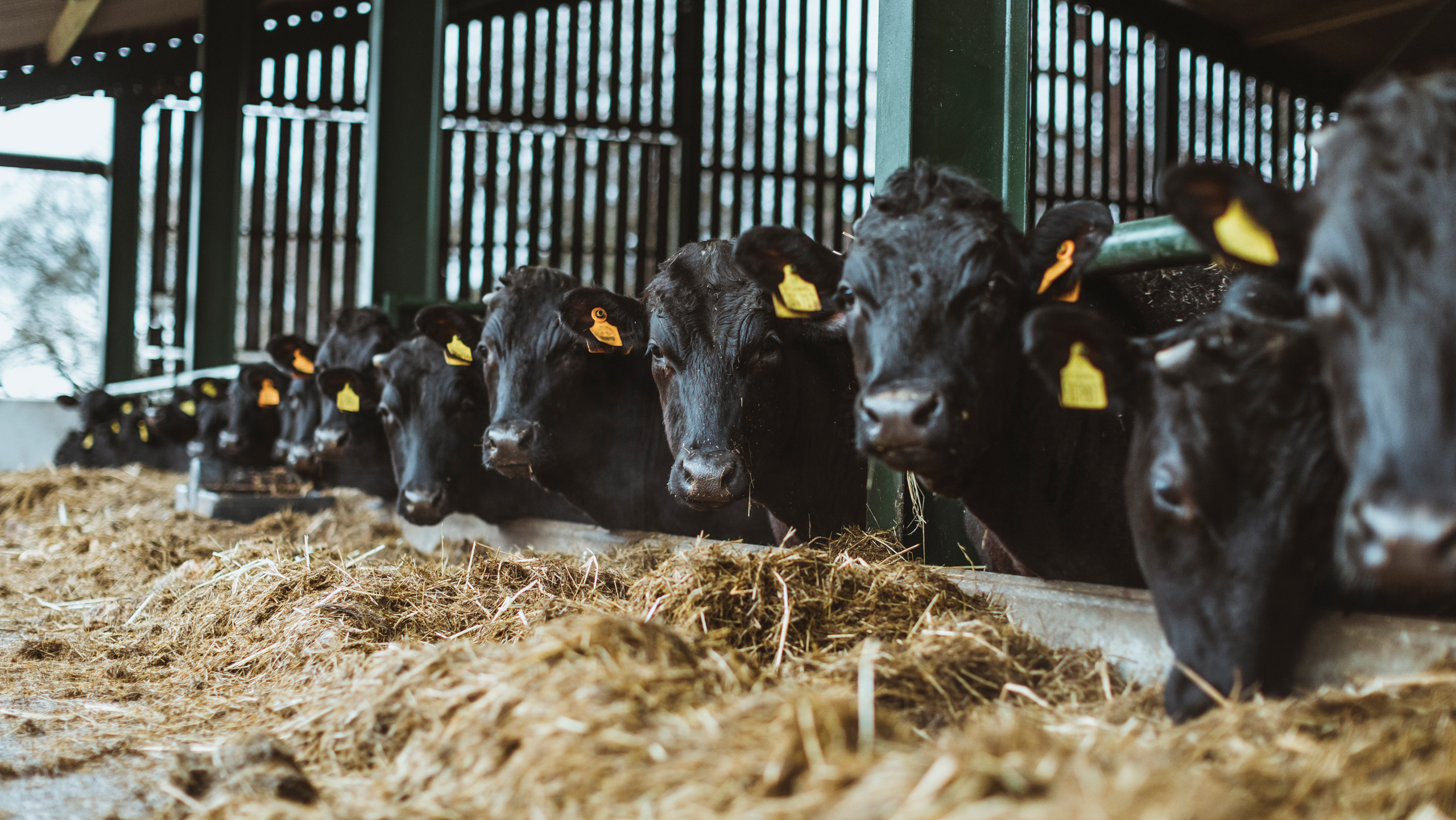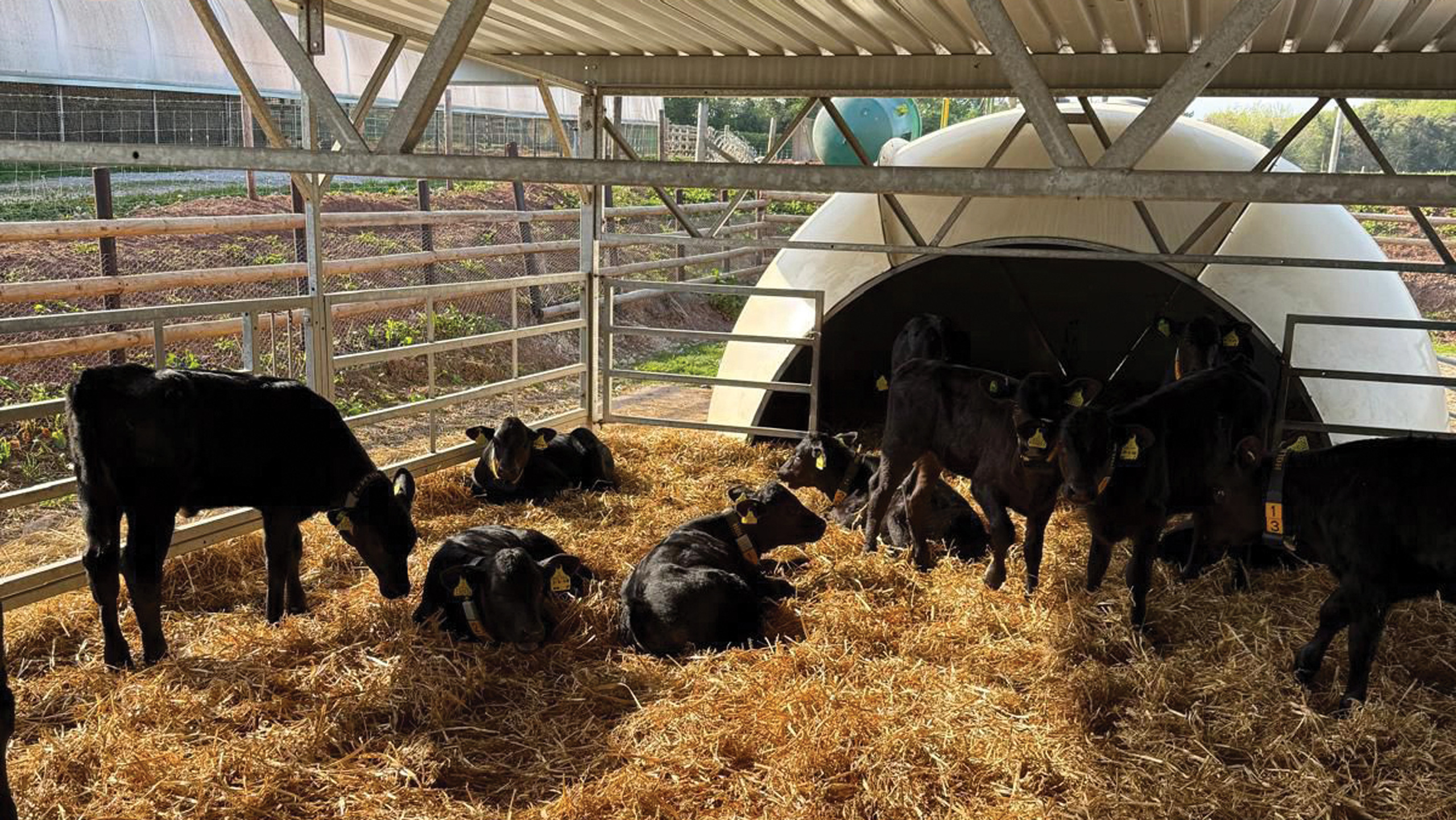Integrated beef schemes: What’s available and how they work
 © Warrendale
© Warrendale Dairy beef made up 37% of GB prime cattle slaughter, up from 28% in 2019, and integrated beef schemes between dairy farmers, beef producers and retailers/processors are on the increase.
These schemes link up the supply chain offering a home for dairy-bred calves, while supplying security by guaranteeing a minimum price.
See also: How genomic testing is helping farm target beef to premium markets
This allows prospective and existing beef farmers to budget more accurately. Some schemes even provide integrated lending and fixed forward prices to ease cashflow.
We take a look at the various schemes operating in Britain.
1. Elite Beef scheme, Woodhead Bros, Myton Food Group
Launched in 2013 by Woodhead Bros and rebranded in 2022, the Elite Beef scheme sources and rears dairy beef calves in partnership with Buitelaar Group.It has 140 Elite Beef growers/finisher farms.
Weight targets Calves leave rearing units at 140kg liveweight.
They either go to grower-only farms, where they are expected to hit 400-450kg liveweight, or to grower-finisher farms, where they must achieve 300-360kg deadweight.
Most farms follow the grower-finisher model.
Ownership and payments While on growing farms, Woodhead Bros retains ownership. Grower-finisher cattle are owned by farmers and can be financed by the company.
All animals are contracted back to Woodhead Bros and paid on the UK weekly standard base price, underwritten by a minimum price linked to the calf price on the month of delivery. Farmers receive the greater of these two.
Bonuses and penalties are based on the standard Europ grid, with payments made up to 420kg deadweight.
Genetics The Woodhead Bros scheme finishes both continental and native breeds.
Health and welfare Reared calves must average 140kg as a batch (120kg minimum) and achieve a growth rate of 0.7kg/day.
They are bovine viral diarrhoea-free (BVD) tagged, vaccinated for pneumonia and infectious bovine rhinotracheitis, castrated and disbudded (only steers and heifers are finished).
Costs Farmers cover all input costs (feed, vet and bedding).
Health issues within seven days of arrival are assessed to ensure farmers avoid incurring losses. A 2% mortality allowance applies to grower-only farms.
Support Farmers receive visits from field staff, access to independent nutrition advice, slaughter feedback and option to attend live-to-dead events.
Contact amanda.watson@mytonfoodgroup.com
2. Koyu Wagyu
A new entrant to the market, Koyu Wagyu is an industry partnership promising “premium prices for premium beef”.
It is looking for dairy farms to supply calves, as well as rearers, growers and finishers.
The scheme is the brainchild of Jake Tue, who says: “We are looking to build a community of farmers that want to be part of a scheme delivering premium beef at a premium price.”
Weight targets and specifications Cattle are typically killed at 20-24 months once they hit 350-360kg deadweight.
Ownership and payments Dairy farmers receive a fixed price of £300 a head for bulls and heifers (based on calves weighing 40kg at two to three weeks) or £150 a head if under TB restrictions.
Thereafter, the animals cost £4/kg for rearers, growers and finishers to purchase. Funding is offered on a farm-by-farm basis by Oxbury.
Farmers are guaranteed a £1/kg premium above the base price for a standard R4L carcass based on the weekly standard beef price. A further 75p/kg bonus is paid for marbling.
Genetics Semex and Norbreck Genetics provide semen from top Wagyu sires.
Health and welfare Farms must be Red Tractor assured. Calves are DNA-tagged to ensure they are from a premium Wagyu sire and for traceability.
There are at present no stipulations for vaccination and testing, however, farmers are vetted to ensure they are the right fit.
Costs Feed costs, bedding and vet and medication must be covered by the farmers.
Support Nutritional advice is provided by Carrs Billington and fieldspersons offer help with feed plans, killing plans, drawing cattle and transport.
Contact jake.tue@koyugroup.com

© Warrendale
3. Warrendale Wagyu
Now in its eighth year, Warrendale Wagyu is working with 1,000 UK farmers from rearers to finishers.
It processes 250 cattle weekly, supplying Aldi, Waitrose, 300 restaurants, its own online shop, wholesalers and export markets.
Ownership and payments Dairy farmers must use Wagyu sires supplied by Genus.
They receive £270 a calf at 14 days old (£175 if under TB restrictions), plus a £50 a calf premium at slaughter.
Farmers own the animals, with Oxbury offering finance.
All animals must be sold back to Warrendale. Prices are reviewed every six months under a cost-of-production model.
Finishers receive £6.50/kg base, rising by 10p/kg with each marbling score up to a maximum of £7.10/kg.
Growers and rearers receive a £25/head premium for hitting weight-for-age targets.
No penalties apply for weight or age and there are no kill charges, commissions on sales or admin fees.
Genetics and health In partnership with Genus, Warrendale runs a genetics programme to identify the best sires for feed efficiency, growth, tenderness and meat quality.
Good colostrum management is a prerequisite.
Calves are vaccinated for pneumonia, BVD tag-tested and DNA-tested to verify sires, with progeny performance monitored to assist with the breeding programme.
Costs Farmers cover all costs, including transport when they sell animals.
Support Farmers have access to an independent nutritionist and peer-to-peer learning within the group.
They are also invited to attend a biennial Warrendale Wagyu conference.
Warrendale is working with Savills and GSC Grays to deliver full economic costings on a snapshot of its farms to help guide future farmgate prices.
Contact livestock@warrendale-wagyu.co.uk

© MQ
4. Meadow Quality Beef Scheme
Farmer-owned co-operative Meadow Quality (MQ) has recently launched its new MQ Beef scheme, offering greater flexibility than other schemes.
Farmers must sell animals back through MQ, but can choose the timing.
Cattle can be sold as forward stores or at finishing, for example, with MQ acting as a trading intermediary. Participation in other schemes is also permitted.
Ownership and payments Farmers must purchase the animals, though MQ has partnered with Oxbury to offer finance options.
Haulage costs must be covered by the farmer. MQ says contract prices are still being finalised.
Weight targets and specifications Rearers raise calves from 59kg to 140kg. Growers advance them to 450kg liveweight, and finishers aim for 620kg.
Payment structures and penalties depend on the processor they are sold to, though most follow the Europ grid.
Genetics and health Calves are British Blue and Aberdeen-Angus sired dairy crosses, collected at one of MQ’s two national calf collection centres.
MQ works with Genus to supply semen to dairy farms.
The partnership also DNA-tests 1,500 animals annually to measure traits such as feed intake, methane emissions, and days on farm – helping to identify superior sires.
Calves are vaccinated against pneumonia strains of bovine respiratory syncytial virus, parainfluenza type 3 and Johne’s, and BVD tag and tested. Bespoke vaccination plans are also available.
Costs All costs including haulage must be covered by the farmers while cattle are in their care.
Support MQ operates a commodity buying group to get the best prices, and offers forward-buying options.
Advice is also available on feed plans, transition management and slaughter selection.
Contact contracts@meadowq.co.uk
5. ABP Gamechanger
Now in its seventh year, this scheme is a partnership between processor ABP and Sainsbury’s, exclusively supplying Aberdeen Angus meat.
Ownership and payments Calf prices are reviewed monthly. Dairy farmers receive a fixed forward price at the time of insemination.
ABP owns the calves while at the rearing farm, and rearers are paid a set management fee a head for the 12 weeks calves are on farm, with bonuses available for good performance.
Finishers must buy the weaned calves, with finance available through ABP’s partnership with Oxbury.
Weight targets and specifications Cattle must be fed predominately grass or forage-based diets and must graze when weather allows.
Interest rates are charged if animals go over 20.5 months. Payments are reviewed quarterly.
Genetics and health Sires are sourced by Genus and Cogent.
Calves are BVD tested and vaccinated for respiratory disease while at the rearing unit.
Costs Rearers benefit from ABP purchasing feed and vets and medicine, as well as contributing towards bedding and milk powder.
Finishers must cover all costs while animals are on farm, but all farmers receive free AgriWebb management support software.
Support A dedicated on-farm team provides tailored support and ABP runs regular discussions on various topics.
Contact enquiries@gamechangerfarming.com
Farmers Weekly contacted Buitelaar, but it declined to comment saying it is “reviewing its B&B contracts”.
Pickstock did not respond to a request for an interview.
